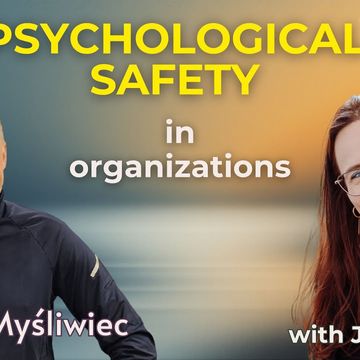Blogs & vlogs
Leaders must model the team they want #psychologicalsafetyLeadership teams often forget a simple truth:Dec 10, 2025
Your results are the loudest argument for psychological safety #psychologicalsafetyIn this clip, Paweł Myśliwiec and I discuss a simple truth:Dec 9, 2025
Scrum Is Supposed to Be Itchy (Joanna Płaskonka on Real Professional Scrum)In this short clip, Joanna Płaskonka shares her favorite metaphor for Scrum — the glove test.Nov 13, 2025
Psychological Safety Is Not a Hippie Trend 💡💡 Psychological safety isn’t a “feel-good” idea — it’s a performance driver.Nov 12, 2025
Psychological Safety: The Secret Behind High-Performing Teams 💡💡 The biggest predictor of team performance isn’t talent or structure — it’s psychological safety.Nov 4, 2025
Psychological Safety Beyond the Team: How Leaders Lift (or Limit) Performance — with Pawel MysliwiecIn this conversation, Joanna Plaskonka and Pawel Mysliwiec explore psychological safety as the environment where learning, performance, and quality thrive. We go beyond the team to ask: how do leaders and cross-team ecosystems shape safety, performance, and real business outcomes?Nov 3, 2025
Agility Starts with YOU 💡 (Advice for Leaders)💡 For leaders who want real agility — start with yourself.Nov 2, 2025
Speaking at TechMeetup Ostrava 2025! 🧠 The Power of Exploration in Product Development 🚀I’m thrilled to announce that I’ll be speaking at TechMeetup Ostrava 2025 next week! 🎤Oct 30, 2025








